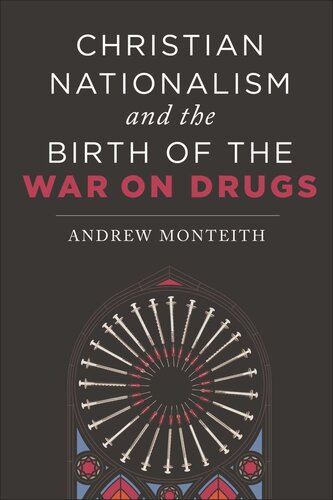

Most ebook files are in PDF format, so you can easily read them using various software such as Foxit Reader or directly on the Google Chrome browser.
Some ebook files are released by publishers in other formats such as .awz, .mobi, .epub, .fb2, etc. You may need to install specific software to read these formats on mobile/PC, such as Calibre.
Please read the tutorial at this link: https://ebookbell.com/faq
We offer FREE conversion to the popular formats you request; however, this may take some time. Therefore, right after payment, please email us, and we will try to provide the service as quickly as possible.
For some exceptional file formats or broken links (if any), please refrain from opening any disputes. Instead, email us first, and we will try to assist within a maximum of 6 hours.
EbookBell Team

4.0
66 reviewsRecovers the religious origins of the War on Drugs
Many people view the War on Drugs as a contemporary phenomenon invented by the Nixon administration. But as this new book shows, the conflict actually began more than a century before, when American Protestants began the temperance movement and linked drug use with immorality.
Christian Nationalism and the Birth of the War on Drugs argues that this early drug war was deeply rooted in Christian impulses. While many scholars understand Prohibition to have been a Protestant undertaking, it is considerably less common to consider the War on Drugs this way, in part because racism has understandably been the focal point of discussions of the drug war. Antidrug activists expressed—and still do express--blatant white supremacist and nativist motives. Yet this book argues that that racism was intertwined with religious impulses. Reformers pursued the “civilizing mission,” a wide-ranging project that sought to protect “child races” from harmful influences while remodeling their cultures to look like Europe and the United States. Most reformers saw Christianity as essential to civilization and missionaries felt that banning drugs would encourage religious conversion and progress.
This compelling work of scholarship radically reshapes our understanding of one of the longest and most damaging conflicts in modern American history, making the case that we cannot understand the War on Drugs unless we understand its religious origins.